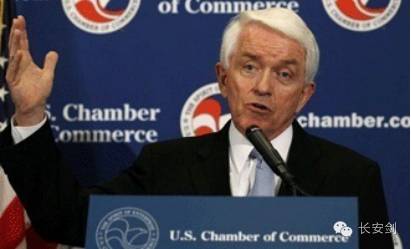The Internet world in your eyes may be calm, but this is just a "representation." In fact, the Internet world has always been undercurrent -
China is the country most affected by cybercrime attacks. From January to August 2013, more than 20,000 Chinese websites were hacked, and more than 8 million servers were controlled by zombies and Trojans outside the country. In 2014, about 240 million Chinese consumers became victims of cybercrime, with economic losses of up to 700 billion yuan. From December 2014 to November 2015, some Internet attacks launched by domestic and foreign hacker organizations have affected at least 10,000 computers in China. The real situation of Internet security is really worrying.

In the Internet age, network information security has become an issue that cannot be ignored. Safeguarding network security is precisely the reason why the Cyber ​​Security Law is coming out. This new law is the most important thing in the Internet field in China this year.
However, some people can't sit still. Recently, the American Chamber of Commerce and other 46 international business groups from the Americas, Europe, Asia and Oceania jointly wrote a letter stating that the Cyber ​​Security Law has increased trade barriers and strongly urged that the new cybersecurity law be amended in accordance with international trade regulations. It is said that this protest is the largest in recent years.
Maybe some of the little partners don't understand it: let's introduce a new law, why are foreign companies so "anxious"? In fact, the most fundamental reason is that foreign companies feel that their cheese has been "moved".
In the past, foreign companies that were spoiled by "super national treatment" have long been accustomed to the unsecured environment of China's cyber security. They hope that information will remain completely freely flowing around the world. The introduction of the "Network Security Law" means that these foreign companies have old The products, markets and operating models are challenged, which is why they are “anxiousâ€. So, I made a big move - a joint letter.
In order to achieve the goal, they carefully selected the time of the protest - coincides with the completion of the second round of the cybersecurity law draft on August 5, the end of the Chinese People's Congress, and put it into practice, that is, at the end of the door critical moment. At the same time, the G20 meeting will be held in Hangzhou in early September. The selection of the time window for this pressure is very particular.
More important, however, is the end result. In the past, once foreign companies felt "accepted" in China, they joined forces to politicize the issue and tried it out. First, the media hype, and then the US government directly put pressure on it, has become a consistent routine, this time as well.

However, this time the pressure on the Cyber ​​Security Law is likely to be counterproductive, and the panacea that politicizes business and industrial issues may fail.
Why is that?
On the one hand, the core content of the Cyber ​​Security Law is in line with internationally accepted norms. In the face of increasingly cyber threats, countries around the world are pushing ahead with the construction of cybersecurity systems, and the United States and the European Union are no exception.
On December 18, 2014, Obama signed four bills including the National Cyber ​​Security Protection Act of 2014 to strengthen US cyber security and the ability to resist cyber attacks. In early 2015, the US House of Representatives passed the "Network Intelligence." The Sharing and Protection Act, which promotes the sharing of network information between companies and governments, is intended to assist the US government in preventing and controlling cyber threats in advance; in April this year, the European Parliament passed the latest Data Protection Act to protect Consumer data and privacy; in July this year, the first cybersecurity law, the Network and Information System Security Directive, officially adopted by the EU legislature, aims to strengthen the security of network and information systems for basic service operators and digital service providers. Both of them fulfill their obligations such as network risk management, network security incident response and notification.

It can be seen that in the foresight, in-depth and meticulous degree of the cybersecurity system, Europe and the United States are clearly ahead of the countries. Nowadays, in order to protect the security of the country's network, China has built a new cyber security law from Europe and the United States. Whose cheese is it? Or European and American countries feel that they can only set fire to themselves, and do not allow other countries to light up? If so, it is simply naked cyber hegemonism!
On the other hand, despite the complexity of the network problems and limited practical experience, this legislation itself is extremely difficult. The Cyber ​​Security Law still has undisputed highlights.
First, it has achieved real openness. Whether it is the first trial or the second trial of the draft, it is publicly released to the public, and extensive opinions are sought from all walks of life. Moreover, the participation of all parties in the society is fierce and the debate is fierce and beyond imagination. Foreign companies can use the normal channels to make various reasonable appeals and suggestions.
Second, the tone of the legislation is that Chinese and foreign companies are treated equally. In fact, the "Network Security Law" has far more impact on Chinese companies and Chinese netizens than foreign companies. The biggest focus of this cybersecurity law is the protection of key information infrastructure, and many central and private enterprises that operate critical information infrastructure will also be affected by the law.
Third, the necessary restrictions are imposed on the power of relevant government departments. The principle of “establishing a multilateral, democratic and transparent network governance system†is clarified in the articles, which is a sign that the Chinese market is becoming more and more open.
Although foreign companies are "unhappy" and Europe and the United States want to "press", they cannot stop this law from coming out. Because, as the fundamental law of China's cybersecurity, this "Network Security Law" is related to our national interests. Chang Anjun feels that this law means four words -
National Security.
At this moment, the launch of the "Network Security Law" is the inevitable development and the need of the situation, echoing the increasingly prominent network security issues. In particular, the potential hidden dangers and crises exposed by the Snowden incident have seriously jeopardized the security of the entire country and society. National interests are linked to national security, and cybersecurity is an indispensable part of national security.
In the Internet age, network penetration and network control have gradually become the means of international struggle. Through the network, you can obtain information from other countries, from national intelligence to personal privacy. It can destroy all Internet-linked information systems, such as communication systems and financial information systems in other countries, and achieve strategic goals without a single paw. Through information penetration, controlling people's thoughts and inciting bad emotions, the chaos of the Arab world a few years ago has proved the tremendous destructive power of the Internet in subverting the regime.
If even the Internet security of the country cannot be guaranteed, then national security cannot be discussed.

(The picture shows the Tunisian mess in 2011)
Today, we advocate the establishment of a true cyber security system, advocate "Internet +", and implement the strategy of strengthening the country through the network. All of this is inseparable from the hard cornerstone of the Cyber ​​Security Law. Whether it is a foreign company "joining a letter" or a pressure from the United States and Europe, it should not be a stumbling block to the "Network Security Law."
As a big country, China cannot wait for others to make rules and accept them passively. Looking forward to this "Network Security Law", it will bring us a peaceful, safe, open and cooperative network space.
We can follow customers' drawings or design to make Customized wire
harness for various industries: game machine, ATM, POS machine, etc.
Customized wire assembly with AVL components from original manufactures. Also harness with local equivalent componets are workable with short L/T and competitive price, also flexible MOQ.
Medical Wire Assemblies,Medical Alligator Clip Cable,Medical Diagnostic Cable,Medical Cable Assembly,Medical Wire Harness,Medical Cable
ETOP WIREHARNESS LIMITED , https://www.etopwireharness.com